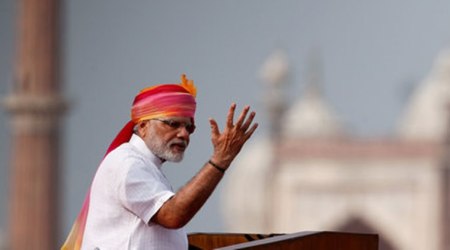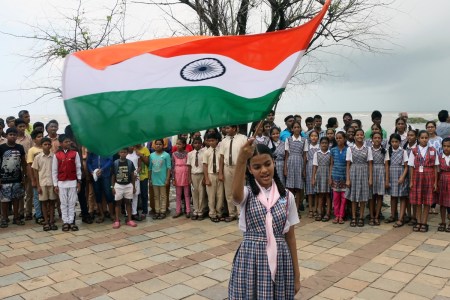 Despite impressive economic growth in the last two decades, inequalities and injustices are pervasive. (Express Photo by Amit Chakravarty)
Despite impressive economic growth in the last two decades, inequalities and injustices are pervasive. (Express Photo by Amit Chakravarty)
As we approach our 71st Independence Day, one cannot help but reflect on where we stand as a nation. I can think of no better way to assess our progress than to measure it against the noble aspirations enshrined in the Preamble of the Constitution which spells out our resolve to secure justice, liberty, equality for every citizen and promote fraternity among all. How far have we progressed on this commitment? Our Constitution should have helped us create a truly egalitarian society but the power elite has failed miserably in ensuring equality and justice for all. Despite impressive economic growth in the last two decades, inequalities and injustices are pervasive. According to World Bank estimates (2015), there has been a decline in India’s poverty rate but this is cold comfort — 172 million citizens still live below the poverty line and constitute 24.5 per cent of the world’s poor.
That the neoliberal juggernaut has trumped distributive justice is evident from the fact that India’s richest one per cent now hold 58 per cent of the nation’s wealth. A great blot on our society is the prevalence of manual scavenging despite stringent laws prohibiting it. There are about 2.6 million dry latrines across the country that require manual cleaning, a loathsome task imposed on the Dalits of all religions by social sanction. That is not all. Although elaborate laws specifically aimed at protecting Dalits are in place, there is no let-up in the atrocities against this group. According to the National Commission for Scheduled Castes, there were 54,355 registered cases, including rape, murder and arson committed against Dalits in 2015 compared to 39,408 cases in 2013.
Another arena darkened by injustice and inequality is rural India where 68 per cent of our people live. India is today self-sufficient in agriculture, is the biggest exporter of rice in the world, the biggest producer of milk and second-largest producer of fruits and vegetables. The farming community made this happen. Yet unending waves of farmer suicides are overt manifestations of an on-going human tragedy. They are victims of an iniquitous system where even bumper harvests do not ensure reasonable profits; where there is no insurance against the vagaries of nature or volatility of the market; where the government’s focus is on containing food inflation in cities with hardly a thought to whether the producer is adequately remunerated; where the governing class obsesses about smart cities and bullet trains while rural India remains without basic infrastructure.
Our founding fathers had underlined fraternity as a vital ingredient for building a vibrant democracy. Jawaharlal Nehru had cautioned that “it is the responsibility of the dominant community not to use its position in any way which might prejudice the secular ideal of the nation.” After Partition, there was animosity between Hindus and Muslims but that has abated over time. However, since the late 1980s, the mutual suspicion and distrust have intensified, and the country is witnessing a majoritarian assault on the Muslim and his way of life. Lynching for beef eating and suspicion of cow slaughter has become virtually quotidian. Politicians have been fishing in troubled waters by instigating the worst elements in both communities. With even educational institutions and cultural bodies purveying the gospel of hate, what we see today is an overpowering communalisation of the public space. The social gulf between the two communities that seems to be widening poses a greater threat to the nation’s well-being than terrorism or Pakistan.
Extreme gender inequality and intolerance to dissent are further manifestations of a deeply polarised society. I am reminded of what James Baldwin, the great Afro-American novelist observed in 1963 about white racists, the powerful and the wealthy in America: “I am terrified at the moral apathy, the death of the heart that is happening in this country.” We all need a change of heart.

